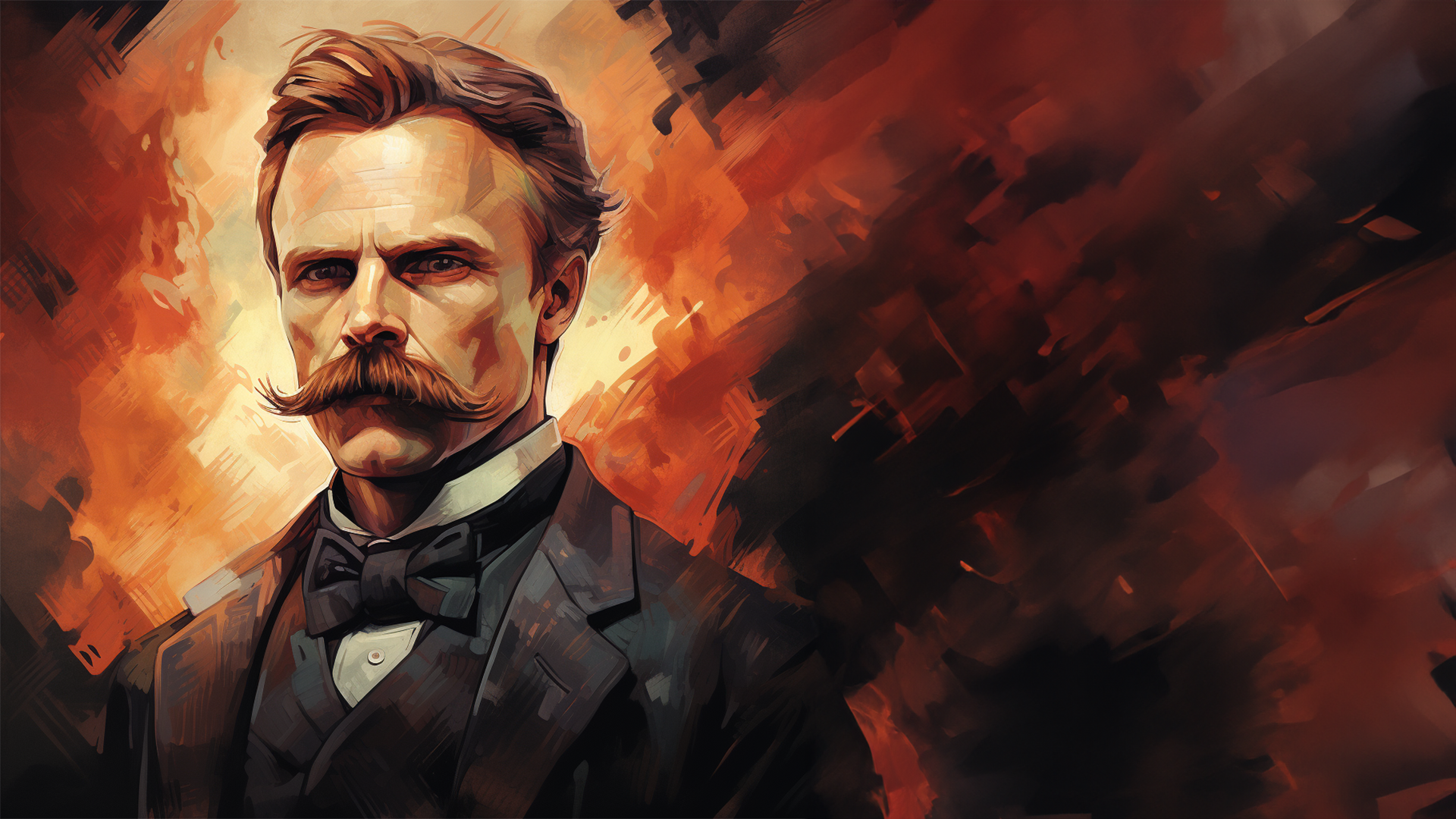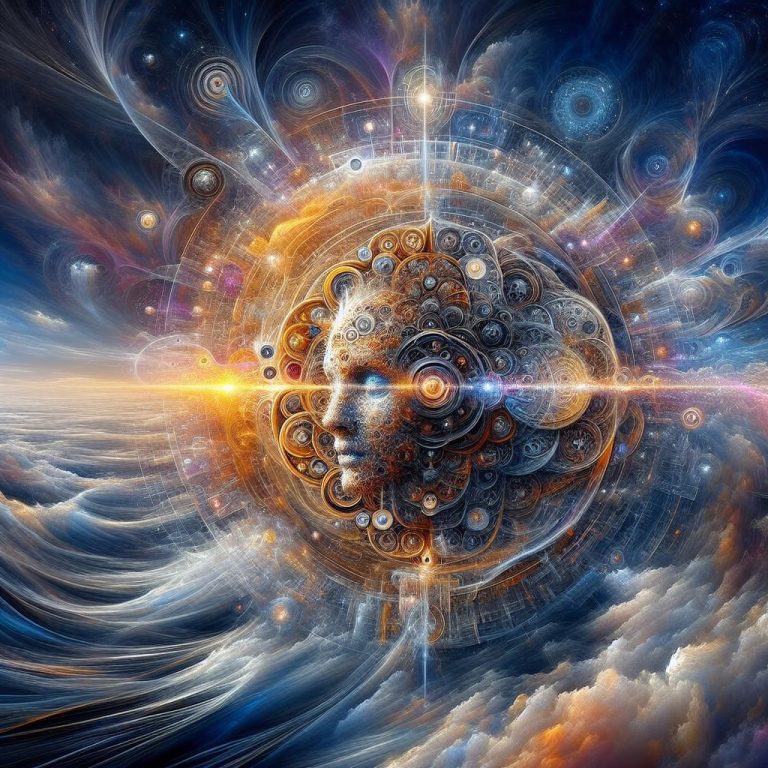
Materialism has given us many of the good things in life that we now take for granted, such as not dying at a young age of preventable diseases, as well as a plethora of worldly comforts, including the never-ending Netflix libraries of entertainments and delights impossible to the world’s richest men a mere 30 years ago. Materialism has one flaw however, and that is that it leaves no room for the soul. The materialists have looked everywhere and can’t find evidence of either God or soul. What is God but the biggest soul of all? Materialists can’t find God, soul, or awareness even when they look in the most obvious place such as the human brain, and that leads them to conclude that no such things exist. There’s no man in the sky ready to judge their actions, even when they themselves feel judged. Thus, girded by this realisation they declare that there was nothing before birth and nothing shall be found after death, that there won’t even be the awareness of having ever been aware. This naturally enough leads to nihilism. Sometimes nihilism can be good, other times it can be bad, one is optimistic and active, the other pessimistic and lethargic as posited by Nietzsche who famously said that:
“Nihilism. It is ambiguous:
- Nihilism as a sign of increased power of the spirit: as active nihilism.
- Nihilism as decline and recession of the power of the spirit: as passive nihilism.” – Friedrich Nietzsche – The Will to Power.
When most people think of Nihilism, they think of the latter and not the former described in Nietzsche’s quote, typified in pop culture as the melancholy teen, staring at the walls whilst listening to sad music, unable to get out of bed because there’s no point to anything. There’s no reason for his birth, there’s no purpose, no ongoing telos, or grand story arc to his life. He’s merely a self-arranging collection of atoms acting out the laws of physics in its own tiny corner of the cosmos. He fails to see the big picture because he’s been trained by materialism to look only at the small, the world of atoms that themselves aggregate into the larger structures of reality that we see around us, such as trees, rocks, plants, people, and animals, before finally revealing themselves in the most grandiose vistas of sunsets, starlight, and sunrise. If this isn’t magical, I don’t know what is! We happy nihilists have no room, nor sympathy for the pessimistic types, the reasons why I’m about to outline!
“There are only two ways to live your life. One is as though nothing is a miracle. The other is as though everything is a miracle.” ― attributed to Albert Einstein
The fact that we can experience this, that we can be aware of being aware, is the first miracle of creation and not the big bang as often declared by other thinkers:
“As Terence McKenna observed, “Modern science is based on the principle: ‘Give us one free miracle and we’ll explain the rest.’ The one free miracle is the appearance of all the mass and energy in the universe and all the laws that govern it in a single instant from nothing.” – Rupert Sheldrake
The pessimistic nihilist sees only a pile of bricks where others would see a house. The active nihilist would then demand that we do something with the bricks, build a better house, more grander and beautiful than before or destroy it simply because we can. The active nihilist understands that purpose is found in action. That the very act of getting out of that bed and picking up the tools to do something, anything at all is not just meaningful, but meaning itself! As the Swiss Psychoanalyst Carl Jung Once said:
“You are what you do, not what you say you’ll do. – Carl Jung.”
Should he choose to build then the fact that his efforts will never stand for a million years is unimportant, should he destroy he does so in the full and frank understanding that others may attempt to rebuild the rubble. This is not only desirable but necessary, the Will to Power that is alive and well in all living things only demands one thing, that it be discharged which is why Nietzsche considers the passive nihilism, typical of the bedridden pop culture teenager as symptomatic of an inability to create meaning for oneself. It’s such people that tend to fall prey to political or religious cults and mass movements, all of which are merely substitutes for meaning. For Nietzsche meaning is something that one must create for oneself, it is not something that is simply handed to you.
The fact that your rearrangements of the cosmos, the work of your hands might be changed, altered, or destroyed in the unseen future beyond your existence is unimportant to the active nihilist. After your days, it will be the task of somebody else to rearrange the matter of the universe as they see fit, whether they build or destroy should make no difference to you. Human beings are not built to endure eternal timescales and that it would be hell if we were. The continuous entropy of death, rebirth and decay is baked into the laws of the physics, everything that exists does so at the expense of something else, every new construction is made out of the left-over parts of all previous things whether that’s houses, cars, cats, or babies so we should not be surprised to find that creativity obeys the same laws which is why even destruction is an act of creation and as such often cathartic and energising.
Nothing can create unless it first destroys, whether that’s new life, new solar systems, new farmland, new people or even new stories and new works of art. What we are deep down inside, what the active nihilist recognises to be true, is change itself. That’s what the Will to Power is, it’s the discharge of strength in a way that we find to be pleasing. It’s not a will to life, an eternal striving will as posited by Schopenhauer, but a Will to Power. I say again that it demands only that it be discharged.
‘The world itself is the will to power – and nothing else! And you yourself are the will to power – and nothing else!’ – Friedrich Nietzsche. – The Will to Power
The Will to Power isn’t good, and neither is it evil, it just simply is. Labels such as ‘Good,’ and ‘Evil,’ for Nietzsche are merely an interpretation of the events, motivations or actions that prevailed at a given time and as such is a function of power and not truth!
In the Nietzschean conception of the Will to Power we are, at the very core our being, material agents for change. We have no choice but to change the world around us and in turn to be changed by it. We can change our circumstances; we can even change our values. Nietzsche demands that all such changes be by our own volition, nothing more. As active Nihilists we always reject out of hand the attempts of others to impose their own morality upon us.
“The snake which cannot cast its skin has to die. As well the minds which are prevented from changing their opinions; they cease to be mind.” – Friedrich Nietzsche
The passive nihilist is content to let the universe change him even if the experience of such things is deeply unpleasant and proves himself to be lacking in the will to power, the active nihilist realises that he can change anything, but more so, he must change in order to truly be alive! In such a man the Will to Power is alive, vibrant and well. He needs no other justification for existence, and his happiness is not dependent upon external validation. He is the Ubermensch. The Ubermensch is the personification of change, the positive change that comes from the liberation from old ideas, beliefs, and modes of being that would hold one back or interfere with one’s authentically chosen goals. It’s also the liberation from the slave morality of crowds, religions, political parties, or national doctrines. The Ubermensch does not live someone else’s life, he chooses for himself his own.

